
Welcome to the 5-0
Celebrating CBA Members Licensed Since 1975
May/June 2025
Download This Article (.pdf)
This is the first of a series of articles celebrating members who have been practicing law for at least 50 years. Many thanks to Marjorie Nanian for volunteering to write this series to help us showcase the experiences of these valued members of the Colorado legal community.
John H. Barrett
License Date: 5/15/1975
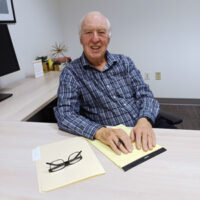 John H. Barrett considers Long Beach, California, his hometown and is one of the few Colorado attorneys to have attended college tuition-free in California. But after graduating from the University of California at Davis School of Law in 1974, he followed a girlfriend to Colorado and became admitted to practice in the state in 1975. (His present wife, Carol, was not that girlfriend.)
John H. Barrett considers Long Beach, California, his hometown and is one of the few Colorado attorneys to have attended college tuition-free in California. But after graduating from the University of California at Davis School of Law in 1974, he followed a girlfriend to Colorado and became admitted to practice in the state in 1975. (His present wife, Carol, was not that girlfriend.)
Barrett’s first job was with a three-person law firm in Boulder. He then moved on to another small firm before opening his own firm, where he continues to work as a general practitioner handling domestic relations, small business, real estate, collections, and some criminal matters.
In 1990, he took a position as a substitute associate judge for the City of Louisville Municipal Court when the current judge was unavailable. He ended up serving in that role for 11 years. Barrett held court one or two times per month and more frequently when the current judge was promoted to county judge. “I enjoyed it,” says Barrett. “There is less tension involved being a decision-maker than as an advocate. I heard cases about dogs, weeds, and traffic violations. The most serious case involved a teenage shoplifter.”
Barrett feels lucky that he was able to practice law and make it work for 50 years. His advice to law students is to get as much clinical experience as possible and not to worry about grades, because nobody cares about that when you get out!
As for the future, Bennett believes that AI is going to be a game changer. “You can have ChatGPT draw up a contract in three seconds and then the attorney can fine-tune it,” he explains. But, he adds, “I don’t believe it will put attorneys out of business because you still need legal analysis.”
Richard Clark
License Date: 4/21/1975
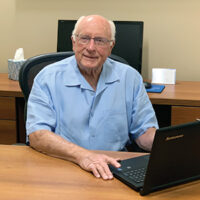 Fort Collins tax attorney Richard Clark believes that the law is a great profession but a jealous mistress. “It’s a lot of work and a lot of unpaid hours. Law students need to realize that they are going to have to make sacrifices.” He gives this same advice to high school students when he hands out college scholarships as a trustee for a small charitable organization. He also suggests that students attend a community college first and take a variety of classes to find out where their interests lie.
Fort Collins tax attorney Richard Clark believes that the law is a great profession but a jealous mistress. “It’s a lot of work and a lot of unpaid hours. Law students need to realize that they are going to have to make sacrifices.” He gives this same advice to high school students when he hands out college scholarships as a trustee for a small charitable organization. He also suggests that students attend a community college first and take a variety of classes to find out where their interests lie.
Clark began his law career as an assistant professor in tax at Colorado State University after finishing an LLM degree at New York University School of Law. He stayed there about five years before deciding to hang his own shingle. His motivation to become an attorney developed during college when he was working for H&R Block preparing tax returns. He liked the finance side of the business, but he thought that becoming a lawyer would ultimately be a better fit.
His decision to pursue tax law was reinforced by a couple of professors at NYU Law who were beloved by students. One of them, Charles S. Lyon, had an open-door policy for his students and was always available to chat with them. He even had a small refrigerator with snacks and drinks. “I also got to talk with the professors who wrote the textbooks I used,” reminisces Clark, “like the book on the Employee Retirement Income Security Act (ERISA).”
Clark concentrated his law practice on bankruptcy and tax issues involving wills, contracts, and small businesses. “I’ve helped a lot of people during my career, but it bothers me when the IRS takes advantage of small businesses that can’t afford the fight.” As a quasi-retired attorney, Clark still keeps up with the financial industry and publishes a newsletter called “The Weekly Quill.”
When asked how technology has changed the practice of law, Clark explains, “I used to prepare tax returns by hand, but now it is done on a computer. Although tax laws have become more complicated, technology has made it easier for people to use do-it-yourself software to prepare their own returns.”
Gilbert Dickinson
License Date: 6/15/1975
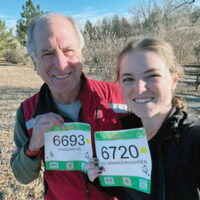 “Fifty years has gone fast,” reflects litigation attorney Gilbert Dickinson. “I’ve developed a bond with a lot of people whom I have helped through the years.”
“Fifty years has gone fast,” reflects litigation attorney Gilbert Dickinson. “I’ve developed a bond with a lot of people whom I have helped through the years.”
Dickinson began his career with an insurance defense firm and later began to accept medical malpractice case referrals. The more he did, the better he got, and he soon fell in love with the work because there was so much to learn. He has had over 100 jury trials and only lost two of them. “Juries try to do the right thing and are sympathetic,” says Dickinson. He has been recognized for his professional achievements by nominations to serve on the American Board of Trial Advocates and the American College of Trial Lawyers.
The Milwaukee, Wisconsin, native didn’t plan on becoming a lawyer, but in his last year at the University of Colorado at Boulder, he decided that he didn’t like his career options as a finance major. Dickinson wasn’t interested in working for a bank or for a stockbrokerage firm. “I had no idea of the money they made,” he says. “I just thought that I would have more options with a law degree, like working in the securities industry.”
None of Dickinson’s four children became attorneys. “I think they thought it was too much work,” he chuckles. The future career of his nine grandchildren hasn’t been determined yet, but he did enjoy training with his granddaughter Mia for a half-marathon, and he has taught all his grandchildren to ski. Teaching skiing was something the he did while attending the University of Colorado, he explains, noting that he has been on skis since he was 4 years old.
Dickinson offers the following advice to law students: “Look for an area that inspires you and that you would enjoy. You want it to be a passion and not just a job.” When he mentors other attorneys, he challenges them to try to put themselves in the other person’s shoes. “You need to understand the other party in order to understand the issues,” he explains. “Be open to what they are saying.” Dickinson’s years of experience has taught him that the ability to empathize helps develop good relationships.
Dickinson gives this advice in light of the changes he has witnessed in the law, mainly the inability of two people to solve a case on their own. “It used to be that I would take a couple of depositions and then settle a case.” Over time, mandatory mediation has become so pervasive that attorneys do not come together. They consider mediation to be part of the process and delay the resolution of cases because it occurs shortly before trial. “This has made litigation very expensive because it eats up your time, energy, and expenses.” Dickinson predicts that mediation will continue, and that technology will increase its use because people have become used to remote meetings.
Life hasn’t been all work and no play. Music has also been a part of Dickinson’s life. He was in a high school band as the keyboardist and later played at his church. He also wrote the music for his children’s weddings. Recently, he recorded a song with his high school granddaughter, Olivia.
Kenneth Fish
License Date: 5/19/1975
 Civil litigation lawyer Kenneth Fish attended college at Indiana State University and graduated with a business and economics major. He always assumed he would be in business since he worked as a department store manager at Mongomery Wards as an undergraduate. But, in his last year of college, he remembered how inspired he was by the television show Perry Mason, with Raymond Burr playing the star defense attorney, and he applied to law school out of curiosity. He was accepted by Indiana University Mauer Law School after he had already accepted a job after graduation. By this time, Fish had two children, so he turned down the job and went to law school.
Civil litigation lawyer Kenneth Fish attended college at Indiana State University and graduated with a business and economics major. He always assumed he would be in business since he worked as a department store manager at Mongomery Wards as an undergraduate. But, in his last year of college, he remembered how inspired he was by the television show Perry Mason, with Raymond Burr playing the star defense attorney, and he applied to law school out of curiosity. He was accepted by Indiana University Mauer Law School after he had already accepted a job after graduation. By this time, Fish had two children, so he turned down the job and went to law school.
After graduating from law school in 1975, a hometown friend invited Fish to come to Colorado to ski. The young attorney was impressed with the vibrant and progressive nature of the state and decided to move his family here. The next step was to find a job, which he did with Legal Aid in Denver.
It was Fish’s next job with Haddon, Morgan and Foreman, P.C. that he met the man who became his inspiration, Harold (Hal) Haddon. “Hal had the ability to focus and understand people,” reflects Fish.
Fish still practices in Glendale, Colorado. Although none of his children followed in his footsteps, one son, Jared, worked for his dad after high school and went on to get a degree in criminal justice. His other son, Jason, lives in Ohio and is an illustrator for novels, including one by Stephen King.
His advice to future lawyers is to learn to communicate, and don’t assume that because you pass the bar exam that you know everything. Also, don’t assume you have to be a trial lawyer. There are many other ways to help people. “You have to be willing to get outside of your comfort zone, but beware of getting into your incompetence zone,” he cautions.
Judge Jean Stewart
License Date: 5/19/1975
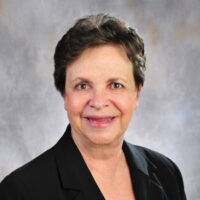 Judge Jean Stewart didn’t grow up in western Pennsylvania dreaming of being a lawyer. Instead, she wanted to be an FBI agent. This dream was triggered by a visit to the FBI Academy during a high school trip to Washington, DC. However, fate had other plans for her.
Judge Jean Stewart didn’t grow up in western Pennsylvania dreaming of being a lawyer. Instead, she wanted to be an FBI agent. This dream was triggered by a visit to the FBI Academy during a high school trip to Washington, DC. However, fate had other plans for her.
After graduating from Western Illinois University in Macomb, Illinois, Stewart spent four years teaching communications classes at a college. She came to Denver in the summer of 1971 to take graduate classes and wasn’t impressed with them after the first semester. Then fate intervened and she bumped into an old friend who reminded her of her childhood dream. At that time, an accounting degree or a law degree you would get you into the FBI Academy, so Stewart enrolled at the University of Denver Law School to follow her dream.
After graduating in 1974, Stewart clerked for the youngest federal district court judge in Denver, Sherman Feinsilver. He was the only judge to have two female law clerks. After one and a half years, Stewart left the court and joined Holland and Hart, the largest law firm in Denver. But after two years, the young Stewart was at a crossroads: she wanted to have a family but found that litigation and motherhood weren’t compatible. So, she switched practice areas and firms, and joined Holme, Roberts and Owen in their trust department, where she remained for 20 years.
Fate intervened again when the Denver probate judge retired and Stewart was appointed by the governor to fill the vacancy. Stewart enjoyed her job and worked extremely hard at it for 16 years until her retirement in 2011. She considers this to be her greatest achievement as an attorney.
Once again, the law firm of Holland and Hart came courting and offered the retired judge an opportunity to establish a trust and estates department and to mentor young attorneys on a part-time basis. Stewart accepted and did this for a while as she contemplated setting up her own shop for mediation and arbitration.
“I wanted to help people solve their problems in another manner,” reflects Judge Stewart. “Mediation allows for more freedom than litigation. I can investigate more thoroughly by asking questions that I couldn’t ask as a sitting judge.” Stewart believes that people can fashion their own settlements and be more creative. “This is why mediation is so powerful.”
During her time on the bench, Judge Stewart was disappointed to see that attorneys had become more quarrelsome, a characteristic that is unbecoming of officers of the court and detrimental to their clients. She blames technology for a lot of it. Many times, the attorneys haven’t even met each other.
Another one of Stewart’s concerns is AI. “It’s seeping in, and I wonder if the things it says are true or not.” As to the future, Judge Stewart foresees lawyers appearing in court as holograms. Webex is the beginning of this potential future.
“My life has been a constant struggle,” reflects Judge Stewart, “but I have been the beneficiary of so much good fortune. My advice to future lawyers is to pursue it and be open to opportunities, because you never know what a good fit would be.”
Bruce W. Warren
License Date: 1/15/1975
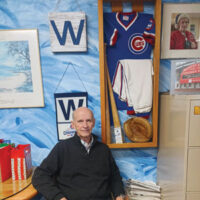 Bruce W. Warren, also known as Biff, a nickname his parents gave him at birth, followed in his father’s footsteps with a dual career. His father was an attorney in Nebraska and a tax preparer. Biff is an attorney and the managing editor of a weekly newspaper, the Left Hand Valley Courier, in Niwot. The town of Niwot was named after a Chief Niwot, a Southern Arapaho leader who died at the Sand Creek Massacre in 1864. Niwot means Left Hand in Arapaho.
Bruce W. Warren, also known as Biff, a nickname his parents gave him at birth, followed in his father’s footsteps with a dual career. His father was an attorney in Nebraska and a tax preparer. Biff is an attorney and the managing editor of a weekly newspaper, the Left Hand Valley Courier, in Niwot. The town of Niwot was named after a Chief Niwot, a Southern Arapaho leader who died at the Sand Creek Massacre in 1864. Niwot means Left Hand in Arapaho.
Biff’s dad was his inspiration to become a lawyer. “He had integrity, was fair, and was well respected in the community of Creighton, Nebraska, where he later became a judge,” reflects Biff. At first, Bill didn’t want to become an attorney because “they work too hard.” But he later realized that he didn’t have to prepare tax returns like his father.
The Vietnam War loomed over Biff during his college years. He took two years of ROTC, but he broke his wrist and couldn’t pass the physical. Then in his first year of law school, he was told to report to the Army for a physical. His doctor wrote a letter regarding the continuing issue Biff had with his broken wrist, and the Army agreed to delay the physical. By the time Biff was called up again, the draft had ended.
After graduating from the University of Nebraska Law School, Biff came to Colorado on vacation. “Colorado had a milder climate than Nebraska, so I stayed.”
Once admitted to the Colorado bar in 1975 (he was also admitted to the Nebraska Bar the same year), Biff began his career as a law clerk for a criminal defense attorney in Boulder. He wrote briefs and memorandums. Unable to find anything better, Biff opened his own practice, with his dad’s help, eventually specializing in wills and trusts.
Many things have changed since Biff hung up his shingle, with technology being the biggest. “Today, it’s how we do research,” he comments. “Because of it, people expect a more instantaneous response from their lawyers.” He also believes that the legal process has become more consumer friendly, especially with the establishment of small claims courts. “A downside is that attorneys don’t see each other as frequently because we don’t appear in court as often. Now a lot of appearances, such as status conferences, are done on Webex.” This trend concerns Biff, who believes that the law will continue to become more technology-orientated with less human contact.
In his office, Biff sits under his proudest, non-law achievement—playing on the fantasy team of the Chicago Cubs baseball team in 1983. He has the jersey, pants, bat, and mitt framed and hanging directly across from his desk, to remind him of a one-day fantasy career.


